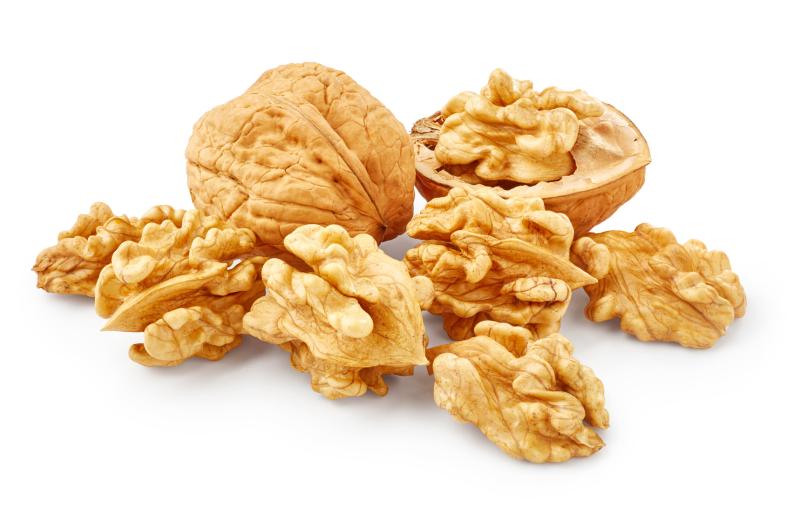
Walnut supplementation for 2 years does not affect cognition in healthy older adults, but it appears to delay cognitive decline in subgroups at increased risk as shown in functional brain magnetic resonance imaging (fMRI) and posthoc analyses, suggests a recent study in Spain.
“Walnut consumption counteracts oxidative stress and inflammation, two drivers of cognitive decline,” the authors said.
In this randomized controlled trial, 708 free-living older adults (aged 63–79 years; 68 percent women) from two centres (Loma Linda and Barcelona) were randomly allocated to a diet enriched with walnuts at ∼15-percent energy (30–60 g/day) or a control diet (abstention from walnuts). A comprehensive neurocognitive test battery was administered at baseline and 2 years. The authors performed then repeated structural and brain fMRI in 108 Barcelona participants.
Of the participants, 636 completed the intervention. Apart from variations in nutrient intake, Barcelona participants were less educated, smoked more and had lower baseline neuropsychological test scores than those from Loma Linda. Walnuts were well tolerated; compliance was also good.
In modified intention-to-treat analyses (n=657), no differences were found in the primary outcome of global cognitive composite between groups, with mean changes of –0.072 (95 percent confidence interval [CI], –0.100 to –0.043) in the walnut diet group and –0.086 (95 percent CI, –0.115 to –0.057) in the control diet group (p=0.491).
In posthoc analyses, significant differences were observed in the Barcelona cohort, with unadjusted changes of –0.037 (95 percent CI, –0.077 to 0.002) in the walnut group and –0.097 (95 percent CI, –0.137 to –0.057) in the control diet group (p=0.040).
In a subset of Barcelona participants, results of brain fMRI indicated greater functional network recruitment in a working memory task in controls.
“These encouraging but inconclusive results warrant further investigation, particularly targeting disadvantaged populations, in whom greatest benefit could be expected,” the authors said.